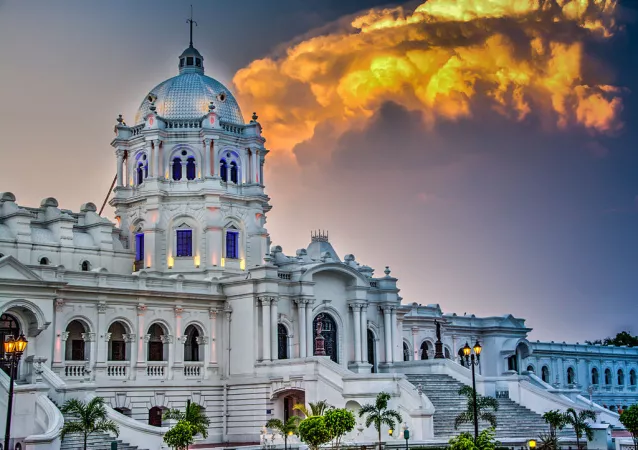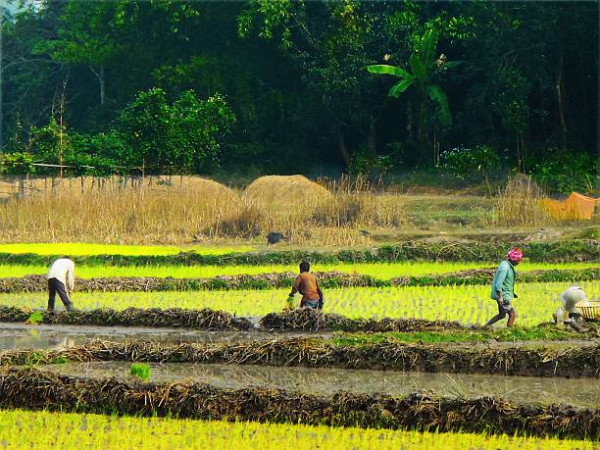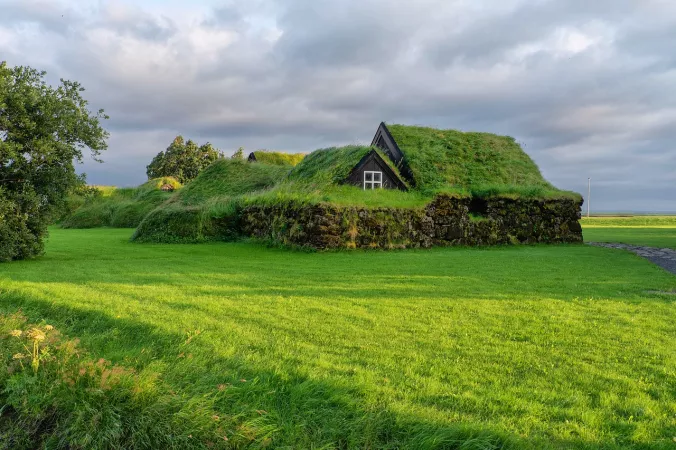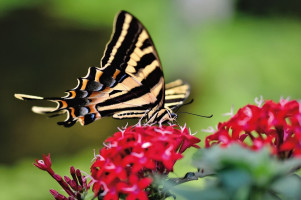
Tripura Travel Guide
Tripura, located in Northeast India, is a land of rich history and cultural significance. Known for its stunning landscapes, ancient temples, and vibrant tribal culture, Tripura is a hidden gem waiting to be explored. The state is famous for its lush greenery, majestic palaces, and warm hospitality of its people.Top Attractions in Tripura
1. **Ujjayanta Palace**: A beautiful royal residence turned museum. 2. **Neermahal Palace**: A stunning water palace located in the middle of Rudrasagar Lake. 3. **Unakoti**: An archaeological site with rock-cut sculptures and carvings. 4. **Sepahijala Wildlife Sanctuary**: Home to a variety of flora and fauna. 5. **Jampui Hills**: Offering panoramic views and beautiful landscapes.Tripura is Famous for
Its rich cultural heritage and vibrant tribal traditions.Top Attractions in Tripura
- Ujjayanta Palace - Neermahal Palace - Unakoti - Sepahijala Wildlife Sanctuary - Jampui HillsWhat's Great about Travelling to Tripura?
- Rich cultural experiences - Serene natural beauty - Authentic tribal heritageWhat's Not So Great about Travelling to Tripura?
- Limited connectivity - Monsoon season can be challenging for travel - Limited luxury accommodation optionsTravel Tips for Tripura
- Check visa requirements before traveling - Plan for local transportation options - Respect local customs and traditions for a smooth travel experienceImportant Tripura trip information
- Ideal Duration: A week to explore the major attractions.
- Best Time to Visit: October to March for pleasant weather.
- Nearby Airports and Railway Stations: Agartala Airport and Agartala Railway Station.
Top 2 Places to visit in Tripura
Per Person
15,217
*EXCLUDING APPLICABLE TAXES 5.0 Ratings
( 393 Reviews )
( 393 Reviews )
FAQ's on Tripura
Q1: What is the best time to visit Tripura?
The best time to visit Tripura is during the winter months from October to March when the weather is pleasant and ideal for exploring the cultural and natural beauty of the region. This period also coincides with various festivals and events that showcase the rich heritage of Tripura. However, monsoon season from June to September can also be a good time to visit for lush greenery, but some areas may be inaccessible due to heavy rainfall.
Q2: Do I need a visa to travel to Tripura?
Most visitors to Tripura will need a valid Indian visa to enter the country. Travelers should check with their respective embassies or the Indian government's official visa website for the latest information on visa requirements. Some nationalities may be eligible for e-visas or visa-on-arrival facilities, so it is advisable to confirm the specific requirements based on your nationality before traveling to Tripura.
Q3: What are the must-visit attractions in Tripura?
Tripura boasts a wealth of attractions for travelers, including the majestic Ujjayanta Palace, the ancient ruins of Neermahal, the picturesque Sepahijala Wildlife Sanctuary, and the tranquil beauty of Unakoti. Don't miss the colorful festivals like Kharchi Puja and the vibrant local markets offering traditional handicrafts and textiles. The state's rich cultural heritage is evident in the temples of Tripura Sundari and Bhubaneswari, making them must-visit sites for history buffs and spiritual seekers alike.
Q4: Is Tripura a safe place to travel?
Tripura is generally considered safe for tourists, with a low crime rate compared to other Indian states. However, it is advisable to exercise caution in crowded areas and take necessary precautions to safeguard your belongings. Travelers are recommended to respect local customs and traditions to ensure a smooth and enjoyable trip. It's always wise to stay informed about the current situation in the region before traveling and follow any travel advisories issued by your government.
Q5: What is the local currency in Tripura and can I use credit cards?
The official currency of Tripura is the Indian Rupee (INR). While major cities and towns may have ATMs where you can withdraw cash, it's advisable to carry sufficient cash for smaller transactions in rural areas. Credit cards are accepted in some hotels, restaurants, and shops in urban centers, but it's always best to have cash on hand, especially when traveling to remote areas. Inform your bank about your travel plans to avoid any issues with card usage during your trip.
Q6: What is the local cuisine like in Tripura?
Tripura offers a diverse culinary experience with a blend of flavors influenced by its tribal communities and neighboring regions. Must-try dishes include Mui Borok, a traditional Tripuri thali featuring bamboo shoot, fish, and local herbs, Chakhwi - a pork curry cooked with local spices, and Wahan Mosdeng - a fiery chutney made of fermented fish. Vegetarians can savor dishes like Chakhwi with Berma, a flavorful curry with fermented soybean, and Mwkhwi, a dish made with roasted green chilies. Make sure to indulge in the local sweets like Chakhao Kheer, a black rice pudding, and Pitha, a rice cake, to complete your gastronomic journey in Tripura.
Q7: What transportation options are available in Tripura?
Travelers in Tripura can avail of various transportation options including buses, shared jeeps, and auto-rickshaws for local commutes. Taxis are available for hire in major towns and cities for more convenient travel. Renting a car with a driver is also a popular choice for exploring the state at your own pace. Public buses connect different parts of Tripura, but they may not be the most comfortable option for long journeys. It's recommended to plan your travel in advance, especially if you are visiting remote areas, as transportation options may be limited in certain regions.
Q8: Are there any cultural norms or etiquette I should be aware of when visiting Tripura?
When visiting Tripura, it is important to respect the local customs and traditions of the indigenous tribal communities. Dress modestly, especially when visiting religious sites or tribal villages, to show respect for the local culture. Seek permission before taking photographs of people, especially in rural areas. Greeting people with a "Namaskar" or "Hello" in the local language is appreciated. It's customary to remove your footwear before entering someone's home or a place of worship. Avoid public displays of affection, as they may be frowned upon in traditional settings. By showing cultural sensitivity and being mindful of local norms, you can enhance your travel experience in Tripura.
Q9: I am a travel agent. How can I buy travel leads of Tripura?
Register yourself as a travel agent at agents.tripclap.com and then you can buy travel leads to Tripura once your account is approved. For more details contact our support team at +91-8069186564 or support@tripclap.com



